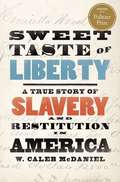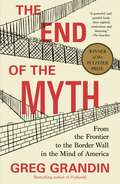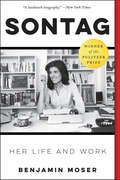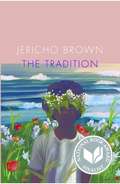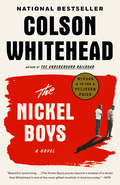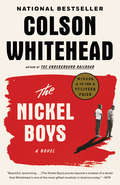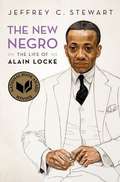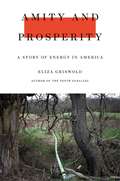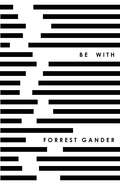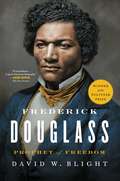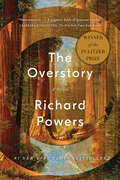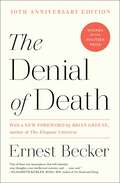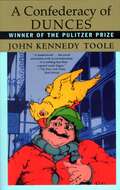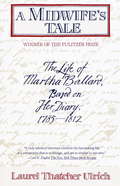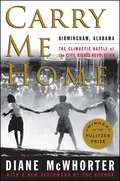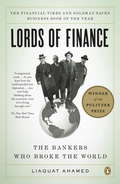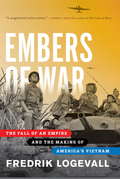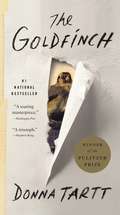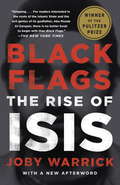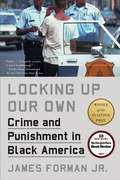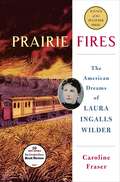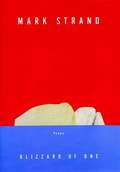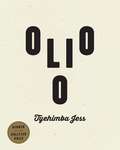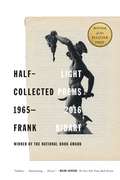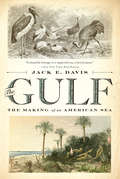Special Collections
Pulitzer Prize Award Winners
Description: Bookshare is pleased to offer the following titles, winners of the Pulitzer Prize Award. Note: Some drama winners are available and are listed under Fiction awards. #award
- Table View
- List View
Sweet Taste Of Liberty
by W. Caleb McDanielThe unforgettable saga of one enslaved woman's fight for justice--and reparations Born into slavery, Henrietta Wood was taken to Cincinnati and legally freed in 1848. In 1853, a Kentucky deputy sheriff named Zebulon Ward colluded with Wood's employer, abducted her, and sold her back into bondage. She remained enslaved throughout the Civil War, giving birth to a son in Mississippi and never forgetting who had put her in this position. By 1869, Wood had obtained her freedom for a second time and returned to Cincinnati, where she sued Ward for damages in 1870. Astonishingly, after eight years of litigation, Wood won her case: in 1878, a Federal jury awarded her $2,500. The decision stuck on appeal. More important than the amount, though the largest ever awarded by an American court in restitution for slavery, was the fact that any money was awarded at all. By the time the case was decided, Ward had become a wealthy businessman and a pioneer of convict leasing in the South. Wood's son later became a prominent Chicago lawyer, and she went on to live until 1912. McDaniel's book is an epic tale of a black woman who survived slavery twice and who achieved more than merely a moral victory over one of her oppressors. Above all, Sweet Taste of Liberty is a portrait of an extraordinary individual as well as a searing reminder of the lessons of her story, which establish beyond question the connections between slavery and the prison system that rose in its place.
The End of the Myth
by Greg GrandinFrom a Pulitzer Prize finalist, a new and eye-opening interpretation of the meaning of the frontier, from early westward expansion to Trump’s border wall.
Ever since this nation’s inception, the idea of an open and ever-expanding frontier has been central to American identity. Symbolizing a future of endless promise, it was the foundation of the United States’ belief in itself as an exceptional nation—democratic, individualistic, forward-looking. Today, though, America hasa new symbol: the border wall.
In The End of the Myth, acclaimed historian Greg Grandin explores the meaning of the frontier throughout the full sweep of U.S. history—from the American Revolution to the War of 1898, the New Deal to the election of 2016. For centuries, he shows, America’s constant expansion—fighting wars and opening markets—served as a “gate of escape,” helping to deflect domestic political and economic conflicts outward. But this deflection meant that the country’s problems, from racism to inequality, were never confronted directly. And now, the combined catastrophe of the 2008 financial meltdown and our unwinnable wars in the Middle East have slammed this gate shut, bringing political passions that had long been directed elsewhere back home.
It is this new reality, Grandin says, that explains the rise of reactionary populism and racist nationalism, the extreme anger and polarization that catapulted Trump to the presidency. The border wall may or may not be built, but it will survive as a rallying point, an allegorical tombstone marking the end of American exceptionalism.
A Pulitzer Prize Winner
Sontag
by Benjamin MoserWINNER OF THE PULITZER PRIZEFinalist for the Lambda Literary AwardFinalist for the PEN/Jacqueline Bograd Weld Award for BiographyNamed one of the Best Books of the Year by: O Magazine, Milwaukee Journal Sentinel, Seattle TimesThe definitive portrait of one of the American Century’s most towering intellectuals: her writing and her radical thought, her public activism and her hidden private faceNo writer is as emblematic of the American twentieth century as Susan Sontag. Mythologized and misunderstood, lauded and loathed, a girl from the suburbs who became a proud symbol of cosmopolitanism, Sontag left a legacy of writing on art and politics, feminism and homosexuality, celebrity and style, medicine and drugs, radicalism and Fascism and Freudianism and Communism and Americanism, that forms an indispensable key to modern culture. She was there when the Cuban Revolution began, and when the Berlin Wall came down; in Vietnam under American bombardment, in wartime Israel, in besieged Sarajevo. She was in New York when artists tried to resist the tug of money—and when many gave in. No writer negotiated as many worlds; no serious writer had as many glamorous lovers. Sontag tells these stories and examines the work upon which her reputation was based. It explores the agonizing insecurity behind the formidable public face: the broken relationships, the struggles with her sexuality, that animated—and undermined—her writing. And it shows her attempts to respond to the cruelties and absurdities of a country that had lost its way, and her conviction that fidelity to high culture was an activism of its own. Utilizing hundreds of interviews conducted from Maui to Stockholm and from London to Sarajevo—and featuring nearly one hundred images—Sontag is the first book based on the writer’s restricted archives, and on access to many people who have never before spoken about Sontag, including Annie Leibovitz. It is a definitive portrait—a great American novel in the form of a biography.
The Tradition
by Jericho BrownThe Tradition details the normalization of evil and its history at the intersection of the past and the personal. Brown’s poetic concerns are both broad and intimate, and at their very core a distillation of the incredibly human: What is safety? Who is this nation? Where does freedom truly lie? Brown makes mythical pastorals to question the terrors to which we’ve become accustomed, and to celebrate how we survive.
The Nickel Boys (Winner 2020 Pulitzer Prize for Fiction)
by Colson WhiteheadPULITZER PRIZE WINNER • NATIONAL BESTSELLER • This follow-up to The Underground Railroad brilliantly dramatizes another strand of American history through the story of two boys unjustly sentenced to a hellish reform school in Jim Crow-era Florida. • "One of the most gifted novelists in America today." —NPR When Elwood Curtis, a black boy growing up in 1960s Tallahassee, is unfairly sentenced to a juvenile reformatory called the Nickel Academy, he finds himself trapped in a grotesque chamber of horrors. Elwood&’s only salvation is his friendship with fellow &“delinquent&” Turner, which deepens despite Turner&’s conviction that Elwood is hopelessly naive, that the world is crooked, and that the only way to survive is to scheme and avoid trouble. As life at the Academy becomes ever more perilous, the tension between Elwood&’s ideals and Turner&’s skepticism leads to a decision whose repercussions will echo down the decades. Based on the real story of a reform school that operated for 111 years and warped the lives of thousands of children, The Nickel Boys is a devastating, driven narrative that showcases a great American novelist writing at the height of his powers and &“should further cement Whitehead as one of his generation's best" (Entertainment Weekly). Look for Colson Whitehead&’s new novel, Crook Manifesto, coming soon!
The Nickel Boys
by Colson WhiteheadIn this bravura follow-up to the Pulitzer Prize and National Book Award-winning #1 New York Times bestseller The Underground Railroad, Colson Whitehead brilliantly dramatizes another strand of history through the story of two boys sentenced to a hellish reform school in Jim Crow-era Florida.
As the Civil Rights movement begins to reach the black enclave of Frenchtown in segregated Tallahassee, Florida, Elwood Curtis takes the words of Dr. Martin Luther King to heart: he is "as good as anyone." Abandoned by his parents, but kept on the straight and narrow by his grandmother, Elwood is about to enroll in the local black college.
But for a black boy in the American South in the early 1960s, one innocent mistake is enough to destroy the future. Elwood is sentenced to a juvenile reformatory called The Nickel Academy, whose mission statement says it provides "physical, intellectual and moral training" so the delinquent boys in their charge can become "honorable and honest men."
In reality, The Nickel Academy is a grotesque chamber of horrors, where the sadistic staff beats and sexually abuses the students, corrupt officials and locals steal food and supplies, and any boy who resists is likely to disappear "out back." Stunned to find himself in such a vicious environment, Elwood tries to hold on to Dr. King's ringing assertion "throw us in jail and we will still love you."
His friend Turner thinks Elwood is worse than naive, that the world is crooked and the only way to survive is to scheme and avoid trouble. The tension between Elwood's ideals and Turner's skepticism leads to a decision whose repercussions will echo down the decades. Formed in the crucible of the evils Jim Crow wrought, the boys' fates will be determined by what they endured at The Nickel Academy.
Based on the true story of a reform school in Florida that operated for one hundred and eleven years and warped the lives of thousands of children, The Nickel Boys is a devastating, driven narrative that showcases a great American novelist writing at the height of his powers.
A New York Times Bestseller
The New Negro
by Jeffrey C. StewartWinner of the 2018 National Book Award for Nonfiction.
A tiny, fastidiously dressed man emerged from Black Philadelphia around the turn of the century to mentor a generation of young artists including Langston Hughes, Zora Neale Hurston, and Jacob Lawrence and call them the New Negro -- the creative African Americans whose art, literature, music, and drama would inspire Black people to greatness.
In The New Negro: The Life of Alain Locke, Jeffrey C. Stewart offers the definitive biography of the father of the Harlem Renaissance, based on the extant primary sources of his life and on interviews with those who knew him personally. He narrates the education of Locke, including his becoming the first African American Rhodes Scholar and earning a PhD in philosophy at Harvard University, and his long career as a professor at Howard University. Locke also received a cosmopolitan, aesthetic education through his travels in continental Europe, where he came to appreciate the beauty of art and experienced a freedom unknown to him in the United States. And yet he became most closely associated with the flowering of Black culture in Jazz Age America and his promotion of the literary and artistic work of African Americans as the quintessential creations of American modernism. In the process he looked to Africa to find the proud and beautiful roots of the race. Shifting the discussion of race from politics and economics to the arts, he helped establish the idea that Black urban communities could be crucibles of creativity. Stewart explores both Locke's professional and private life, including his relationships with his mother, his friends, and his white patrons, as well as his lifelong search for love as a gay man.
Stewart's thought-provoking biography recreates the worlds of this illustrious, enigmatic man who, in promoting the cultural heritage of Black people, became -- in the process -- a New Negro himself.
Amity and Prosperity
by Eliza GriswoldIn Amity and Prosperity, the prizewinning poet and journalist Eliza Griswold tells the story of the energy boom’s impact on a small town at the edge of Appalachia and one woman’s transformation from a struggling single parent to an unlikely activist.
Stacey Haney is a local nurse working hard to raise two kids and keep up her small farm when the fracking boom comes to her hometown of Amity, Pennsylvania. Intrigued by reports of lucrative natural gas leases in her neighbors’ mailboxes, she strikes a deal with a Texas-based energy company. Soon trucks begin rumbling past her small farm, a fenced-off drill site rises on an adjacent hilltop, and domestic animals and pets start to die. When mysterious sicknesses begin to afflict her children, she appeals to the company for help. Its representatives insist that nothing is wrong.
Alarmed by her children’s illnesses, Haney joins with neighbors and a committed husband-and-wife legal team to investigate what’s really in the water and air. Against local opposition, Haney and her allies doggedly pursue their case in court and begin to expose the damage that’s being done to the land her family has lived on for centuries. Soon a community that has long been suspicious of outsiders faces wrenching new questions about who is responsible for their fate, and for redressing it: The faceless corporations that are poisoning the land? The environmentalists who fail to see their economic distress? A federal government that is mandated to protect but fails on the job? Drawing on seven years of immersive reporting, Griswold reveals what happens when an imperiled town faces a crisis of values, and a family wagers everything on an improbable quest for justice.
Be With
by Forrest GanderForrest Gander’s first book of poems since his Pulitzer finalist Core Samples from the World: a startling look through loss, grief, and regret into the exquisite nature of intimacy
Drawing from his experience as a translator, Forrest Gander includes in the first, powerfully elegiac section a version of a poem by the Spanish mystical poet St. John of the Cross. He continues with a long multilingual poem examining the syncretic geological and cultural history of the U.S. border with Mexico.
The poems of the third section—a moving transcription of Gander’s efforts to address his mother dying of Alzheimer’s—rise from the page like hymns, transforming slowly from reverence to revelation. Gander has been called one of our most formally restless poets, and these new poems express a characteristically tensile energy and, as one critic noted, “the most eclectic diction since Hart Crane.”
Frederick Douglass
by David W. Blight**Winner of the Pulitzer Prize in History** &“Extraordinary…a great American biography&” (The New Yorker) of the most important African-American of the nineteenth century: Frederick Douglass, the escaped slave who became the greatest orator of his day and one of the leading abolitionists and writers of the era.As a young man Frederick Douglass (1818–1895) escaped from slavery in Baltimore, Maryland. He was fortunate to have been taught to read by his slave owner mistress, and he would go on to become one of the major literary figures of his time. His very existence gave the lie to slave owners: with dignity and great intelligence he bore witness to the brutality of slavery. Initially mentored by William Lloyd Garrison, Douglass spoke widely, using his own story to condemn slavery. By the Civil War, Douglass had become the most famed and widely travelled orator in the nation. In his unique and eloquent voice, written and spoken, Douglass was a fierce critic of the United States as well as a radical patriot. After the war he sometimes argued politically with younger African Americans, but he never forsook either the Republican party or the cause of black civil and political rights. In this &“cinematic and deeply engaging&” (The New York Times Book Review) biography, David Blight has drawn on new information held in a private collection that few other historian have consulted, as well as recently discovered issues of Douglass&’s newspapers. &“Absorbing and even moving…a brilliant book that speaks to our own time as well as Douglass&’s&” (The Wall Street Journal), Blight&’s biography tells the fascinating story of Douglass&’s two marriages and his complex extended family. &“David Blight has written the definitive biography of Frederick Douglass…a powerful portrait of one of the most important American voices of the nineteenth century&” (The Boston Globe). In addition to the Pulitzer Prize, Frederick Douglass won the Bancroft, Parkman, Los Angeles Times (biography), Lincoln, Plutarch, and Christopher awards and was named one of the Best Books of 2018 by The New York Times Book Review, The Wall Street Journal, The Boston Globe, The Chicago Tribune, The San Francisco Chronicle, and Time.
The Overstory
by Richard PowersWinner of the Pulitzer Prize in Fiction Winner of the William Dean Howells Medal Shortlisted for the Man Booker Prize Over One Year on the New York Times Bestseller List A New York Times Notable Book and a Washington Post, Time, Oprah Magazine, Newsweek, Chicago Tribune, and Kirkus Reviews Best Book of the Year "The best novel ever written about trees, and really just one of the best novels, period." —Ann Patchett The Overstory, winner of the 2019 Pulitzer Prize in Fiction, is a sweeping, impassioned work of activism and resistance that is also a stunning evocation of—and paean to—the natural world. From the roots to the crown and back to the seeds, Richard Powers’s twelfth novel unfolds in concentric rings of interlocking fables that range from antebellum New York to the late twentieth-century Timber Wars of the Pacific Northwest and beyond. There is a world alongside ours—vast, slow, interconnected, resourceful, magnificently inventive, and almost invisible to us. This is the story of a handful of people who learn how to see that world and who are drawn up into its unfolding catastrophe.
The Denial of Death
by Ernest BeckerWinner of the Pulitzer prize in 1974 and the culmination of a life's work, The Denial of Death is Ernest Becker's brilliant and impassioned answer to the "why" of human existence. In bold contrast to the predominant Freudian school of thought, Becker tackles the problem of the vital lie -- man's refusal to acknowledge his own mortality. In doing so, he sheds new light on the nature of humanity and issues a call to life and its living that still resonates more than twenty years after its writing.
A Confederacy of Dunces
by John Kennedy Toole and Walker PercyA Confederacy of Dunces is an American comic masterpiece that outswifts Swift, whose poem gives the book its title. Set in New Orleans, the novel bursts into life on Canal Street under the clock at D. H. Holmes department store.
The characters leave the city and literature forever marked by their presences–Ignatius and his mother; Mrs. Reilly’s matchmaking friend, Santa Battaglia; Miss Trixie, the octogenarian assistant accountant at Levy Pants; inept, bemused Patrolman Mancuso; Jones, the jivecat in spaceage dark glasses. Juvenal, Rabelais, Cervantes, Fielding, Swift, Dickens–their spirits are all here.
Filled with unforgettable characters and unbelievable plot twists, shimmering with intelligence, and dazzling in its originality, Toole’s comic classic just keeps getting better year after year.
A Midwife's Tale
by Laurel Thatcher UlrichPULITZER PRIZE WINNER • Drawing on the diaries of one woman in eighteenth-century Maine, "A truly talented historian unravels the fascinating life of a community that is so foreign, and yet so similar to our own" (The New York Times Book Review).Between 1785 and 1812 a midwife and healer named Martha Ballard kept a diary that recorded her arduous work (in 27 years she attended 816 births) as well as her domestic life in Hallowell, Maine. On the basis of that diary, Laurel Thatcher Ulrich gives us an intimate and densely imagined portrait, not only of the industrious and reticent Martha Ballard but of her society. At once lively and impeccably scholarly, A Midwife's Tale is a triumph of history on a human scale.
Carry Me Home
by Diane McwhorterNow with a new afterword, the Pulitzer Prize-winning dramatic account of the civil rights era’s climactic battle in Birmingham as the movement, led by Martin Luther King, Jr., brought down the institutions of segregation."The Year of Birmingham," 1963, was a cataclysmic turning point in America’s long civil rights struggle. Child demonstrators faced down police dogs and fire hoses in huge nonviolent marches against segregation. Ku Klux Klansmen retaliated by bombing the Sixteenth Street Baptist Church, killing four young black girls. Diane McWhorter, daughter of a prominent Birmingham family, weaves together police and FBI records, archival documents, interviews with black activists and Klansmen, and personal memories into an extraordinary narrative of the personalities and events that brought about America’s second emancipation. In a new afterword—reporting last encounters with hero Reverend Fred Shuttlesworth and describing the current drastic anti-immigration laws in Alabama—the author demonstrates that Alabama remains a civil rights crucible.
Lords of Finance
by Liaquat AhamedWinner of the 2010 Pulitzer PrizeWith penetrating insights for today, this vital history of the world economic collapse of the late 1920s offers unforgettable portraits of the four men whose personal and professional actions as heads of their respective central banks changed the course of the twentieth centuryIt is commonly believed that the Great Depression that began in 1929 resulted from a confluence of events beyond any one person?s or government?s control. In fact, as Liaquat Ahamed reveals, it was the decisions taken by a small number of central bankers that were the primary cause of the economic meltdown, the effects of which set the stage for World War II and reverberated for decades.In Lords of Finance, we meet the neurotic and enigmatic Montagu Norman of the Bank of England, the xenophobic and suspicious Émile Moreau of the Banque de France, the arrogant yet brilliant Hjalmar Schacht of the Reichsbank, and Benjamin Strong of the Federal Reserve Bank of New York, whose façade of energy and drive masked a deeply wounded and overburdened man. After the First World War, these central bankers attempted to reconstruct the world of international finance. Despite their differences, they were united by a common fear?that the greatest threat to capitalism was inflation? and by a common vision that the solution was to turn back the clock and return the world to the gold standard.For a brief period in the mid-1920s they appeared to have succeeded. The world?s currencies were stabilized and capital began flowing freely across the globe. But beneath the veneer of boom-town prosperity, cracks started to appear in the financial system. The gold standard that all had believed would provide an umbrella of stability proved to be a straitjacket, and the world economy began that terrible downward spiral known as the Great Depression.As yet another period of economic turmoil makes headlines today, the Great Depression and the year 1929 remain the benchmark for true financial mayhem. Offering a new understanding of the global nature of financial crises, Lords of Finance is a potent reminder of the enormous impact that the decisions of central bankers can have, of their fallibility, and of the terrible human consequences that can result when they are wrong.
Embers of War
by Fredrik LogevallThe struggle for Vietnam occupies a central place in the history of the twentieth century. Fought over a period of three decades, the conflict drew in all the world's powers and saw two of them--first France, then the United States--attempt to subdue the revolutionary Vietnamese forces. For France, the defeat marked the effective end of her colonial empire, while for America the war left a gaping wound in the body politic that remains open to this day. How did it happen? Tapping into newly accessible diplomatic archives in several nations and making full use of the published literature, distinguished scholar Fredrik Logevall traces the path that led two Western nations to lose their way in Vietnam. Embers of War opens in 1919 at the Versailles Peace Conference, where a young Ho Chi Minh tries to deliver a petition for Vietnamese independence to President Woodrow Wilson. It concludes in 1959, with a Viet Cong ambush on an outpost outside Saigon and the deaths of two American officers whose names would be the first to be carved into the black granite of the Vietnam Veterans Memorial. In between come years of political, military, and diplomatic maneuvering and miscalculation, as leaders on all sides embark on a series of stumbles that makes an eminently avoidable struggle a bloody and interminable reality. Logevall takes us inside the councils of war--and gives us a seat at the conference tables where peace talks founder. He brings to life the bloodiest battles of France's final years in Indochina--and shows how from an early point, a succession of American leaders made disastrous policy choices that put America on its own collision course with history: Harry Truman's fateful decision to reverse Franklin Delano Roosevelt's policy and acknowledge France's right to return to Indochina after World War II; Dwight Eisenhower's strenuous efforts to keep Paris in the fight and his escalation of U.S. involvement in the aftermath of the humiliating French defeat at Dien Bien Phu; and the curious turnaround in Senator John F. Kennedy's thinking that would lead him as president to expand that commitment, despite his publicly stated misgivings about Western intervention in Southeast Asia. An epic story of wasted opportunities and tragic miscalculations, featuring an extraordinary cast of larger-than-life characters, Embers of War delves deep into the historical record to provide hard answers to the unanswered questions surrounding the demise of one Western power in Vietnam and the arrival of another. This book will become the definitive chronicle of the struggle's origins for years to come.Advance praise for Embers of War "Fredrik Logevall has gleaned from American, French, and Vietnamese sources a splendid account of France's nine-year war in Indochina and the story of how the American statesmen of the period allowed this country to be drawn into the quagmire."--Neil Sheehan, author of A Bright Shining Lie, winner of the Pulitzer Prize and the National Book Award "Fredrik Logevall is a wonderful writer and historian. In his new book on the origins of the American war in Vietnam, he gives a fascinating and dramatic account of the French war and its aftermath, from the perspectives of the French, the Vietnamese, and the Americans. Using previously untapped sources and a deep knowledge of diplomatic history, Logevall shows to devastating effect how America found itself on the road to Vietnam."--Frances FitzGerald, author of Fire in the Lake, winner of the Pulitzer Prize and the National Book Award
The Goldfinch
by Donna TarttTheo Decker, a 13-year-old New Yorker, miraculously survives an accident that kills his mother.
Abandoned by his father, Theo is taken in by the family of a wealthy friend.
Bewildered by his strange new home on Park Avenue, disturbed by schoolmates who don't know how to talk to him, and tormented above all by his longing for his mother, he clings to the one thing that reminds him of her: a small, mysteriously captivating painting that ultimately draws Theo into the underworld of art.
As an adult, Theo moves silkily between the drawing rooms of the rich and the dusty labyrinth of an antiques store where he works. He is alienated and in love--and at the center of a narrowing, ever more dangerous circle.
The Goldfinch is a mesmerizing, stay-up-all-night and tell-all-your-friends triumph, an old-fashioned story of loss and obsession, survival and self-invention, and the ruthless machinations of fate.
Winner of the Pulitzer Prize
Black Flags
by Joby WarrickWINNER OF THE 2016 PULITZER PRIZE FOR GENERAL NONFICTION"A Best Book of 2015"--The New York Times, The Washington Post, People Magazine, San Francisco Chronicle, Kansas City Star, and Kirkus ReviewsIn a thrilling dramatic narrative, awarded the 2016 Pulitzer Prize for General Nonfiction, Joby Warrick traces how the strain of militant Islam behind ISIS first arose in a remote Jordanian prison and spread with the unwitting aid of two American presidents. When the government of Jordan granted amnesty to a group of political prisoners in 1999, it little realized that among them was Abu Musab al-Zarqawi, a terrorist mastermind and soon the architect of an Islamist movement bent on dominating the Middle East. In Black Flags, an unprecedented character-driven account of the rise of ISIS, Pulitzer Prize-winning reporter Joby Warrick shows how the zeal of this one man and the strategic mistakes of Presidents Bush and Obama led to the banner of ISIS being raised over huge swaths of Syria and Iraq. Zarqawi began by directing terror attacks from a base in northern Iraq, but it was the American invasion in 2003 that catapulted him to the head of a vast insurgency. By falsely identifying him as the link between Saddam and bin Laden, U.S. officials inadvertently spurred like-minded radicals to rally to his cause. Their wave of brutal beheadings and suicide bombings persisted until American and Jordanian intelligence discovered clues that led to a lethal airstrike on Zarqawi's hideout in 2006. His movement, however, endured. First calling themselves al-Qaeda in Iraq, then Islamic State of Iraq and Syria, or ISIS, his followers sought refuge in unstable, ungoverned pockets on the Iraq-Syria border. When the Syrian civil war broke out in 2011, and as the U.S. largely stood by, ISIS seized its chance to pursue Zarqawi's dream of an ultra-conservative Islamic caliphate. Drawing on unique high-level access to CIA and Jordanian sources, Warrick weaves gripping, moment-by-moment operational details with the perspectives of diplomats and spies, generals and heads of state, many of whom foresaw a menace worse than al Qaeda and tried desperately to stop it. Black Flags is a brilliant and definitive history that reveals the long arc of today's most dangerous extremist threat.From the Hardcover edition.
Locking Up Our Own
by James FormanFormer public defender James Forman, Jr. is a leading critic of mass incarceration and its disproportionate impact on people of color. In Locking Up Our Own, he seeks to understand the war on crime that began in the 1970s and why it was supported by many African American leaders in the nation’s urban centers.
Forman shows us that the first substantial cohort of black mayors, judges, and police chiefs took office amid a surge in crime and drug addiction. Many prominent black officials, including Washington, D.C. mayor Marion Barry and federal prosecutor Eric Holder, feared that the gains of the civil rights movement were being undermined by lawlessness—and thus embraced tough-on-crime measures, including longer sentences and aggressive police tactics. In the face of skyrocketing murder rates and the proliferation of open-air drug markets, they believed they had no choice. But the policies they adopted would have devastating consequences for residents of poor black neighborhoods.
A former D.C. public defender, Forman tells riveting stories of politicians, community activists, police officers, defendants, and crime victims. He writes with compassion about individuals trapped in terrible dilemmas—from the men and women he represented in court to officials struggling to respond to a public safety emergency. Locking Up Our Own enriches our understanding of why our society became so punitive and offers important lessons to anyone concerned about the future of race and the criminal justice system in this country.
Prairie Fires
by Caroline FraserMillions of readers of Little House on the Prairie believe they know Laura Ingalls—the pioneer girl who survived blizzards and near-starvation on the Great Plains, and the woman who wrote the famous autobiographical books. But the true saga of her life has never been fully told. Now, drawing on unpublished manuscripts, letters, diaries, and land and financial records, Caroline Fraser—the editor of the Library of America edition of the Little House series—masterfully fills in the gaps in Wilder’s biography. Revealing the grown-up story behind the most influential childhood epic of pioneer life, she also chronicles Wilder's tumultuous relationship with her journalist daughter, Rose Wilder Lane, setting the record straight regarding charges of ghostwriting that have swirled around the books.
The Little House books, for all the hardships they describe, are paeans to the pioneer spirit, portraying it as triumphant against all odds. But Wilder’s real life was harder and grittier than that, a story of relentless struggle, rootlessness, and poverty. It was only in her sixties, after losing nearly everything in the Great Depression, that she turned to children’s books, recasting her hardscrabble childhood as a celebratory vision of homesteading—and achieving fame and fortune in the process, in one of the most astonishing rags-to-riches episodes in American letters.
Spanning nearly a century of epochal change, from the Indian Wars to the Dust Bowl, Wilder’s dramatic life provides a unique perspective on American history and our national mythology of self-reliance. With fresh insights and new discoveries, Prairie Fires reveals the complex woman whose classic stories grip us to this day.
Blizzard Of One
by Mark StrandStrand's poems occupy a place that exists between abstraction and the sensuous particulars of experience. It is a place created by a voice that moves with unerring ease between the commonplace and the sublime. The poems are filled with "the weather of leavetaking," but they are also unexpectedly funny. The erasure of self and the depredations of time are seen as sources of sorrow, but also as grounds for celebration. This is one of the difficult truths these poems dramatize with stoicism and wit. The winner of the Pulitzer Prize for Poetry, Blizzard of One is an extraordinary book--the summation of the work of a lifetime by one of our very few true masters of the art of poetry.
Winner of the 1999 Pulitzer Prize for Poetry
Olio
by Tyehimba JessWinner of the 2017 Pulitzer Prize in Poetry
Winner of the 2017 Anisfield-Wolf Book Award in Poetry
Winner of the 2017 Book Award from the Society of Midland Authors for Poetry
2016 National Book Critics Circle Award finalist for poetry
2017 PEN/Jean Stein Book Award finalist
2017 Kingsley Tufts Poetry Award finalist
Named a top poetry book of spring 2016 by Library Journal
Part fact, part fiction, Tyehimba Jess's much anticipated second book weaves sonnet, song, and narrative to examine the lives of mostly unrecorded African American performers directly before and after the Civil War up to World War I. Olio is an effort to understand how they met, resisted, complicated, co-opted, and sometimes defeated attempts to minstrelize them.
Half-Light
by Frank BidartGathered together, the poems of Frank Bidart perform one of the most remarkable transmutations of the body into language in contemporary literature. His pages represent the human voice in all its extreme registers, whether it’s that of the child-murderer Herbert White, the obsessive anorexic Ellen West, the tormented genius Vaslav Nijinsky, or the poet’s own.
Winner of the 2018 Pulitzer Prize for Poetry
The Gulf
by Jack E. DavisThe tragic collision between civilization and nature in the Gulf of Mexico becomes a uniquely American story in this environmental epic.
When painter Winslow Homer first sailed into the Gulf of Mexico, he was struck by its "special kind of providence." Indeed, the Gulf presented itself as America’s sea—bound by geography, culture, and tradition to the national experience—and yet, there has never been a comprehensive history of the Gulf until now. And so, in this rich and original work that explores the Gulf through our human connection with the sea, environmental historian Jack E. Davis finally places this exceptional region into the American mythos in a sweeping history that extends from the Pleistocene age to the twenty-first century.
Significant beyond tragic oil spills and hurricanes, the Gulf has historically been one of the world's most bounteous marine environments, supporting human life for millennia. Davis starts from the premise that nature lies at the center of human existence, and takes readers on a compelling and, at times, wrenching journey from the Florida Keys to the Texas Rio Grande, along marshy shorelines and majestic estuarine bays, profoundly beautiful and life-giving, though fated to exploitation by esurient oil men and real-estate developers.
Rich in vivid, previously untold stories, The Gulf tells the larger narrative of the American Sea—from the sportfish that brought the earliest tourists to Gulf shores to Hollywood’s engagement with the first offshore oil wells—as it inspired and empowered, sometimes to its own detriment, the ethnically diverse groups of a growing nation. Davis' pageant of historical characters is vast, including: the presidents who directed western expansion toward its shores, the New England fishers who introduced their own distinct skills to the region, and the industries and big agriculture that sent their contamination downstream into the estuarine wonderland. Nor does Davis neglect the colorfully idiosyncratic individuals: the Tabasco king who devoted his life to wildlife conservation, the Texas shrimper who gave hers to clean water and public health, as well as the New York architect who hooked the “big one” that set the sportfishing world on fire.
Ultimately, Davis reminds us that amidst the ruin, beauty awaits its return, as the Gulf is, and has always been, an ongoing story. Sensitive to the imminent effects of climate change, and to the difficult task of rectifying grievous assaults of recent centuries, The Gulf suggests how a penetrating examination of a single region's history can inform the country's path ahead.
Winner of the 2018 Pulitzer Prize for History
